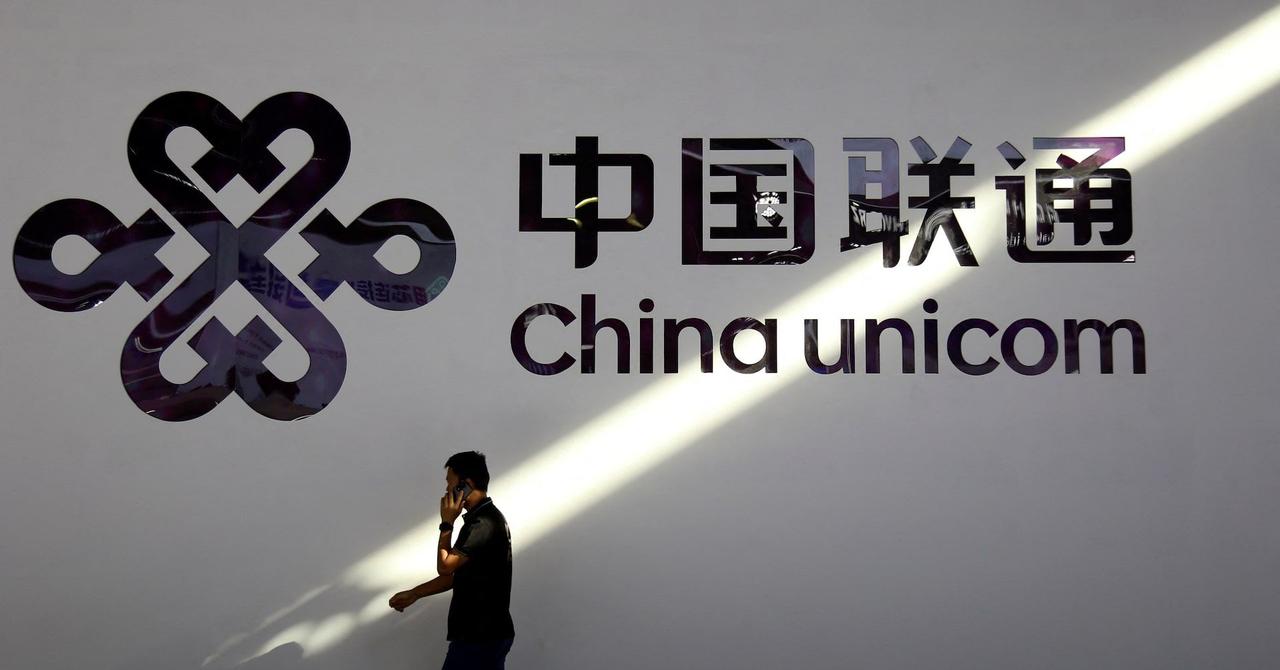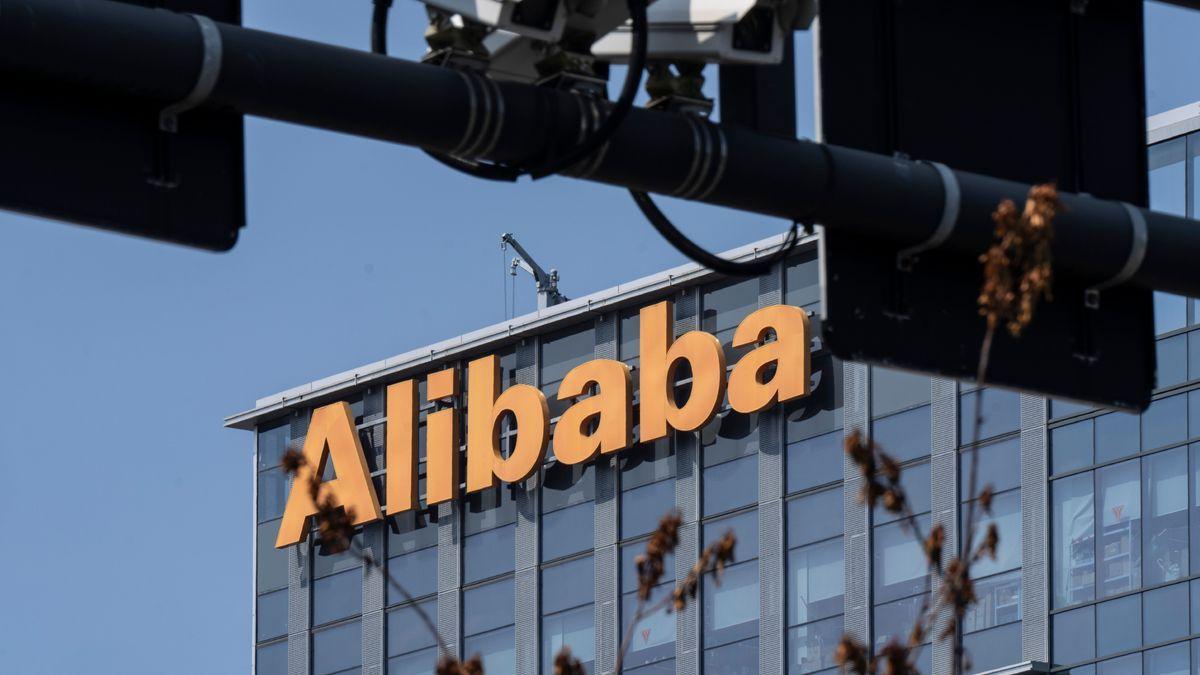China's AI Chip Industry Gains Momentum with Alibaba's Major Deal
5 Sources
5 Sources
[1]
Alibaba's AI Chip Effort Quickens With Big Client China Unicom
Alibaba Group Holding Ltd. has secured high-profile customer in China Unicom for its AI chips, suggesting the Chinese tech leader's nascent semiconductor efforts are gaining traction in its home market. China's e-commerce leader has signed a contract with the country's No. 2 wireless carrier to deploy its Pingtouge or "T-Head" AI accelerators, according to a video posted late Tuesday by state broadcaster CCTV. The chips will go into the mobile operator's big new datacenter in northwestern China, alongside accelerators provided by rivals MetaX and Biren Technology Co.
[2]
China spotlights major data centre project using domestic chips
BEIJING, Sept 17 (Reuters) - China Unicom (0762.HK), opens new tab has built a massive data centre powered by domestically developed artificial intelligence chips from Alibaba and other companies, state broadcaster CCTV said, as Beijing seeks to wean itself off foreign technologies. The news comes as U.S. officials voiced national security concerns at trade talks with China in Madrid this week, aiming to block shipments of chips and other advanced technology. Amid the tension China has grown increasingly keen for domestic firms to switch to homegrown chips, warning them against use of those made by U.S. giant Nvidia, on security grounds. China Unicom's $390-million data centre, in Xining, the capital of the western province of Qinghai, will possess computing capacity of 20,000 petaflops when complete, the provincial government says on its website. So far the centre has built 3,579 petaflops using nearly 23,000 domestically made AI chips, CCTV images showed on Tuesday. Alibaba's (9988.HK), opens new tab chip unit T-Head supplied about 72% of the chips used, with the rest coming from companies such as MetaX, Biren Tech and Zhonghao Xinying, the broadcaster said. The company plans to procure additional chips from Tecorigin (Wuxi), Moore Threads, and Enflame, CCTV said. Alibaba's T-Head has also developed an AI chip called the PPU that features 96 gigabytes of memory and HBM2e, a type of vertically stacked DRAM chip specially designed for AI semiconductors. That positions it as a close competitor to Nvidia's (NVDA.O), opens new tabH20, opens new tab, the most advanced product the U.S. company is currently permitted to sell to China, a comparative table in the broadcast showed. China Unicom, Alibaba, Biren, MetaX, Enflame, Tecorigin and Zhonghao Xinying did not immediately respond to Reuters' requests for comment. Moore Threads declined to comment. On Monday, Beijing said a preliminary investigation of Nvidia found it had violated anti-monopoly laws. ($1=7.1071 yuan) Reporting by Che Pan and Brenda Goh; Editing by Miyoung Kim and Clarence Fernandez Our Standards: The Thomson Reuters Trust Principles., opens new tab * Suggested Topics: * Disrupted Brenda Goh Thomson Reuters Brenda Goh is Reuters' Shanghai bureau chief and oversees coverage of corporates in China. Brenda joined Reuters as a trainee in London in 2010 and has reported stories from over a dozen countries.
[3]
Alibaba's shares jump after it lands a major customer for its AI chips
The Alibaba office building in Nanjing, Jiangsu province, China, on Aug. 28, 2024. Alibaba shares rose on Wednesday after Chinese state media reported that the e-commerce giant secured a major customer for its artificial intelligence chips. China Unicom will deploy Alibaba's AI accelerators from its semiconductor unit called Pingtouge or T-Head, according to a report from China state broadcaster CCTV. Alibaba does not sell chips directly, but companies can effectively use the computing power based on those semiconductors by buying Alibaba cloud services. A person familiar with the matter endorsed the accuracy of the CCTV report to CNBC. Alibaba was not immediately available for comment when contacted by CNBC. Shares of Alibaba closed more than 5% higher in Hong Kong, and the company's U.S.-listed stock was up more than 2% in premarket trade. Alibaba's computing power will be used by China Unicom, the country's second-largest telecommunications company, as part of a big new data center project in China that will also include chips from other domestic firms including MetaX and Biren Technology. The move underscores China's efforts to boost the use of its own domestic semiconductors for AI at a time when Nvidia' access to the world's second-largest economy remains in a state of flux. On Wednesday, the Financial Times reported that China's internet regulator, the Cyberspace Administration of China, told companies to stop buying certain Nvidia AI chips. Shares of Nvidia were about 1% lower in premarket trading. Alibaba is one of China's leading AI players. It has developed its own AI models and is one of the biggest cloud computing players locally. At the same time, it is developing a brand new AI chip, CNBC reported last month. It is unclear if China Unicom is using Alibaba's latest chips. Information about the two companies' partnership emerged after CCTV showed a billboard containing the details as part of a report on the telecoms giant's new Sanjiangyuan data center in Qinghai province.
[4]
China Unicom's Sanjiangyuan data center to deploy domestic AI chips By Investing.com
Investing.com -- China Unicom's Sanjiangyuan data center has signed contracts to deploy artificial intelligence chips from several Chinese companies, according to a Tuesday night report by China state broadcaster CCTV. The domestic AI chip suppliers include Alibaba's chip unit T-Head, Biren Technology, MetaX, and Zhonghao Xinying, as shown on a small billboard containing information provided by the telecom company. This information was presented to Chinese Premier Li Qiang during his visit to the northwestern province of Qinghai earlier this week. The Sanjiangyuan data center is located in Qinghai province. The deployment represents a move to incorporate Chinese-made AI chips in the telecom company's data center operations. This article was generated with the support of AI and reviewed by an editor. For more information see our T&C.
[5]
China spotlights major data centre project using domestic chips
BEIJING (Reuters) -China Unicom has built a massive data centre powered by domestically developed artificial intelligence chips from Alibaba and other companies, state broadcaster CCTV said, as Beijing seeks to wean itself off foreign technologies. The news comes as U.S. officials voiced national security concerns at trade talks with China in Madrid this week, aiming to block shipments of chips and other advanced technology. Amid the tension China has grown increasingly keen for domestic firms to switch to homegrown chips, warning them against use of those made by U.S. giant Nvidia, on security grounds. China Unicom's $390-million data centre, in Xining, the capital of the western province of Qinghai, will possess computing capacity of 20,000 petaflops when complete, the provincial government says on its website. So far the centre has built 3,579 petaflops using nearly 23,000 domestically made AI chips, CCTV images showed on Tuesday. Alibaba's chip unit T-Head supplied about 72% of the chips used, with the rest coming from companies such as MetaX, Biren Tech and Zhonghao Xinying, the broadcaster said. The company plans to procure additional chips from Tecorigin (Wuxi), Moore Threads, and Enflame, CCTV said. Alibaba's T-Head has also developed an AI chip called the PPU that features 96 gigabytes of memory and HBM2e, a type of vertically stacked DRAM chip specially designed for AI semiconductors. That positions it as a close competitor to Nvidia's H20, the most advanced product the U.S. company is currently permitted to sell to China, a comparative table in the broadcast showed. China Unicom, Alibaba, Biren, MetaX, Enflame, Tecorigin and Zhonghao Xinying did not immediately respond to Reuters' requests for comment. Moore Threads declined to comment. On Monday, Beijing said a preliminary investigation of Nvidia found it had violated anti-monopoly laws. (Reporting by Che Pan and Brenda Goh; Editing by Miyoung Kim and Clarence Fernandez)
Share
Share
Copy Link
Alibaba secures a significant contract with China Unicom for its AI chips, showcasing China's push towards domestic semiconductor technology. This move comes amid rising tensions with the US over advanced technology exports.
Alibaba Secures Major AI Chip Deal with China Unicom
Alibaba Group Holding Ltd. has significantly advanced in China's AI chip industry by securing China Unicom, the second-largest wireless carrier, as a high-profile customer
1
. This deal marks a crucial milestone for Alibaba's nascent semiconductor efforts, signaling growing domestic market traction.
Source: CNBC
The Sanjiangyuan Data Center Project
China Unicom is deploying Alibaba's Pingtouge or "T-Head" AI accelerators in its new $390 million Sanjiangyuan data center in Xining, Qinghai province
2
. This massive project plans a computing capacity of 20,000 petaflops upon completion5
.
Source: Reuters
Domestic Chip Deployment
Currently, the project boasts 3,579 petaflops of computing power from nearly 23,000 domestically made AI chips. Alibaba's T-Head supplied roughly 72%, with MetaX, Biren Technology, and Zhonghao Xinying providing the rest
2
.Alibaba's AI Chip Capabilities
Alibaba's T-Head developed the PPU AI chip, featuring 96 gigabytes of HBM2e memory. This positions Alibaba's chip as a close competitor to Nvidia's H20, the most advanced product the U.S. can sell to China
2
.Related Stories
Market Impact and Future Plans
The deal positively impacted Alibaba's stock, seeing over 5% rise in Hong Kong and 2% in premarket U.S. trading
3
. China Unicom intends to further expand domestic chip procurement, including from Tecorigin (Wuxi), Moore Threads, and Enflame4
.
Source: Bloomberg
Geopolitical Context and Industry Implications
This development occurs amid rising U.S.-China tensions over advanced technology exports. U.S. officials recently voiced national security concerns at trade talks, aiming to block chip shipments to China
2
.In response, China actively encourages domestic firms to adopt homegrown chips, citing security grounds against U.S. companies like Nvidia. This drive for technological self-reliance is clearly demonstrated by the Sanjiangyuan data center project, highlighting China's commitment to developing and deploying its own AI chip technology
5
.References
Summarized by
Navi
[4]
[5]
Related Stories
Alibaba Develops AI Inference Chip Amid China's Push for Semiconductor Independence
28 Aug 2025•Technology

Alibaba Forges AI Partnership with Nvidia, Unveils Global Expansion Plans
24 Sept 2025•Business and Economy

Alibaba's AI Ambitions Fuel Stock Surge and Reshape China's Tech Landscape
12 Sept 2025•Technology

Recent Highlights
1
ByteDance's Seedance 2.0 AI video generator triggers copyright infringement battle with Hollywood
Policy and Regulation

2
Demis Hassabis predicts AGI in 5-8 years, sees new golden era transforming medicine and science
Technology

3
Nvidia and Meta forge massive chip deal as computing power demands reshape AI infrastructure
Technology





